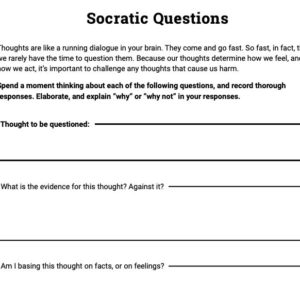Clinical Resources
Free Downloads
The following materials are used with most Tempest clients at some point. Each document is either developed here at Tempest, or is a Creative Commons document free to be shared. Feel free to download and use with your own clients. If you have questions as to what they are or how they are used, feel free to email Thomas at [email protected].
The S.E.A.
(Cognitive Triangle)
This is an approach to teaching the cognitive triangle developed at Tempest, emphasizing (S)tory, (E)motion, and (A)ction rather than Thoughts, Feelings, and Behaviors. It also includes categories of coping skills aligned with each aspect of the triangle.
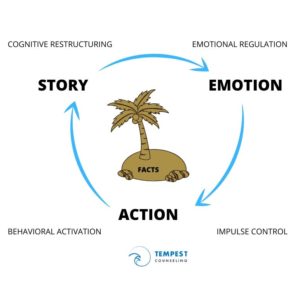
The Pyramid of Control
This is an approach to teaching regions of control that presents those regions as a pyramid, rather than the traditional approach of concentric circles. This is designed to help clients recognize what is outside their control and refocus time and attention to what they are able to control.
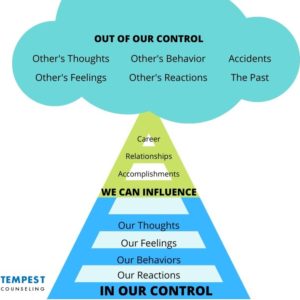
Anger Management Timeline
This handout teaches anger management strategies by identifying self care, impulse control, and emotional regulation skills and aligning them with the before/during/after stages of anger triggers.
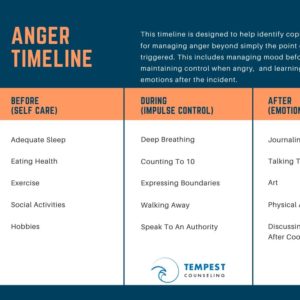
Cognitive Distortions (Unhelpful Thinking Styles)
This has been made available for public use via Creative Commons. This is a resource helps clients to understand and identify cognitive distortions.
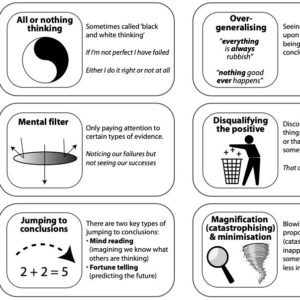
Anxiety Avoidance Cycle
This handout describes the standard anxiety-avoidance cycle, which is applicable beyond just treating an anxiety disorder. This is commonly used with avoidance behaviors in trauma, as well as clients that struggle with procrastination.
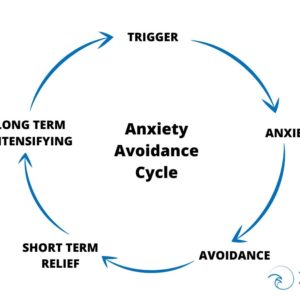
Socratic Questions For Challenging Cognitive Distortions
This is a list of Socratic questions focused on challenging cognitive distortions and reframing negative automatic thoughts.
